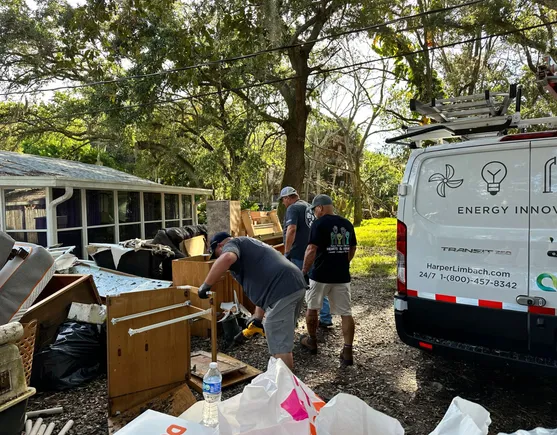• Published March 20, 2024
• Updated April 26, 2024
DEI isn’t just about getting people from varied backgrounds in the room, but supporting them as well. For women and other birthing people, reproductive health benefits continue to be a way that HR can champion gender diversity. For example, while tense, post-Dobbs decision discussions about employer-sponsored abortion benefits ended up shaping employers’ talent acquisition and retention strategies.
Menopausal benefits, one HR professional argued, will be the next frontier.
Kate Westrin is currently looking to bridge that gap between DEI objective and flesh-and-blood support. As head of people experience, partnering, and product engineering for Xero’s Americas division, she told HR Dive how her team had taken a forward-looking approach to their colleagues’ reproductive health.
“Over the past few years, we had really pushed for looking at building out our fertility and inclusive family-forming support,” said Westrin.
Xero currently works with a vendor known to offer benefits including adoption, egg and sperm freezing, IVF and other forms of assisted reproduction, postpartum support and surrogacy. The conversation turned to how HR is more than a liaison between employees and management these days — less transactional, and more involved in shaping the “people” part of the business. Benefits are directly tied to that conversation, including paying stricter attention to holistic aspects of health — like menopause.
“In recent years, there’s been a lot more just dialogue and acknowledgment of the impact that menopause has on women physically, mentally and emotionally. And also [more] acknowledgment that the symptoms can impair daily activities and the ability to be a productive employee,” Westrin said.
Benefits are just one piece of the puzzle
As Xero’s people team seeks to solidify the company’s menopause benefits, the organization puts on health education events for its employees in the meantime. “We’ve had some speakers come in and talk to our broader workforce,” Westrin said. “I think that there is a big opportunity in terms of awareness, as well as wanting to create a space where there’s open dialogue around the impact that [menopause] can have on women.”
Westrin plans to use this approach when Xero nails down its menopause offerings, too. “We’ll want to really promote and raise awareness, once we get a benefit in place,” she said. She said she’d want to outline the details of the offering and how employees can access it in her communications.
Open dialogue about reproductive health, family-planning is crucial
Xero employees had actually been reaching out to their people team “proactively,” Westrin said, in order to thoroughly understand their benefits package. Employees were also asking questions about what Xero would offer them in the future, “from a women’s health and menopause perspective,” Westrin recounted.
This openness was rare in the past: As one COO of a family-planning benefits platform previously said, discussing pregnancy with one’s boss at all was once a social faux pas. From hiding morning sickness to lying about OB-GYN appointments, pregnant people kept their conditions under wraps. But now, it’s increasingly common for pregnancy and other aspects of reproductive health to be at the forefront of work-related conversations.
As legal landscapes change and people can bring more of themselves to work, reproductive health is the next workplace battleground: talent acquisition, employee retention and benefits strategy, to name a few arenas.
SeventyFour via Getty Images
When asked about why the taboo around reproductive health discussions has started to melt away, Westrin didn’t have any concrete answers. (Two researchers at Mercer previously told HR Dive their theory: The COVID-19 pandemic revealed that good child care has been tenuous at best and that all caregivers, especially parents and parents-to-be, need more support.)
But what Xero’s people chief did say was that fertility benefits are now standard for leading workplaces. Some major employer news that affirms this: In 2022, Walmart rolled out doula benefits for workers in Illinois, Indiana and Louisiana after piloting them a year earlier for Walmart workers in Georgia. The next year, Amazon expanded its fertility benefits to workers across 50 countries.
Menopausal support and hormonal treatments, Westrin said, are “just a continued evolution of how employers take a more progressive approach to supporting employees.”
Why extra menopausal and fertility support may be needed
Reproductive support can be an obvious lure, considering that most people can’t afford fertility treatments out of pocket, according to Carrot. Last year, the family planning vendor surveyed 5,000 workers in Canada, India, Mexico, the U.K. and the U.S., each of whom were building their family in some way.
About one-third said they could afford fertility treatments. Twenty-nine percent said they would probably need to go into debt to afford these treatments and 39% said they would have to use their savings, according to the April 2023 report.
Further, 47% of U.S. survey-takers said they’d shoulder a loan to pay for the necessary treatments. Along with Canadians, Americans were the most likely to say they’d take a second job. More than any of the other groups, Americans said they would sell their possessions to help grow their family.
“Fertility is not only a healthcare issue, but also a global workplace concern,” Tammy Sun, founder and CEO of Carrot, noted at the time. The survey results show how “essential” these benefits are, Sun added, and “showcase the opportunity employers have to make impactful investments in this critical part of healthcare.”
Beyond attracting new talent, introducing and highlighting a comprehensive benefits package may also help retain current employees and make them more productive.
In Carrot’s report, 65% of survey-takers said they have researched fertility treatments and benefits on the clock. To be fair, respondents taking a survey offered by a family planning vendor may have more of a vested interest than the average worker; however, that concern may still be worthwhile for HR to address.
More than half of Carrot’s survey-takers said that fertility challenges have “detrimentally” affected their work performance. And in general, per Calm’s Voice of the Workplace survey, the majority of workers say that their mental health has worsened over the past year.
All data points to the long-held belief that mental and physical health go hand-in-hand — and that should inform benefits strategy. When asked what would keep them in the workforce longer, 75% of women in a British Standards Institute survey said more maternity support, including during the return to work, and 72% said increased support for perimenopause or menopause. Regarding the lack of resources, BSI researchers said, “It does not have to be this way.”
Along with benefits, researchers recommended providing schedule flexibility and creating “a positive workplace
culture that prioritizes people of all ages,” especially in its well-being programs. “Nor is this just for women to address — there is an opportunity for male colleagues and workers of a different generation to play a role and turn ambition into action,” researchers said.
Article top image credit: Fly View Productions via Getty Images






Leave a Reply